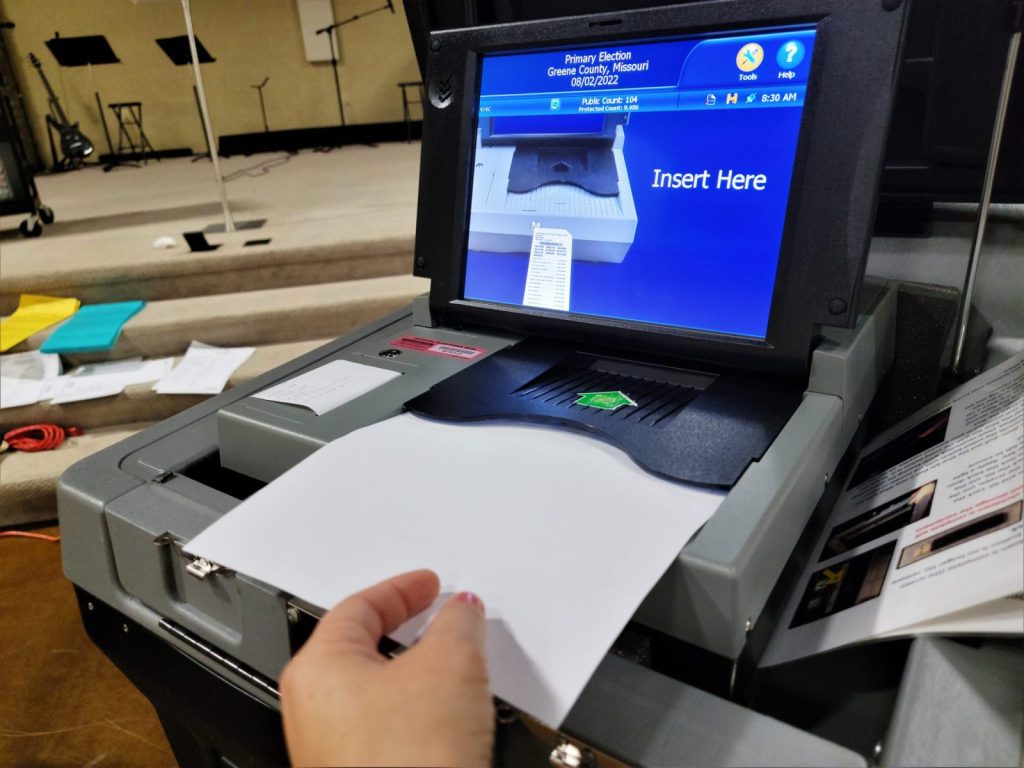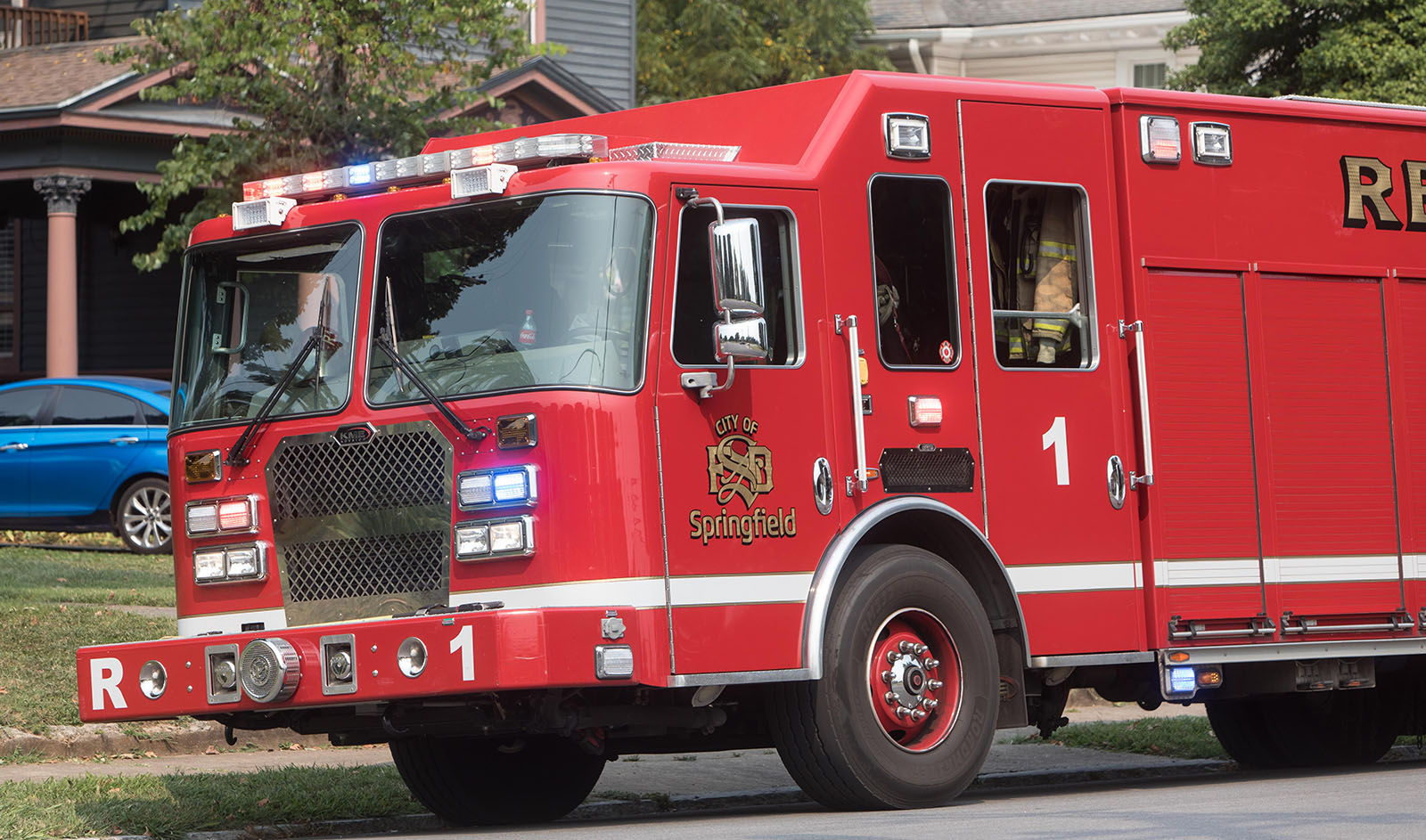A new ¾-cent sales tax, which was proposed to take effect following the expiration of a police-firefighter pension tax of the same value, faces an uphill battle to make the April 2024 election.
There's a chance it won't appear in front of Springfield voters at all.
The current proposal, presented to Springfield City Council members at a September retreat, would seek a new tax to fund needs and projects across the city — many of which are laid out in the comprehensive plan Forward SGF — as well as to continue investing in the Police and Firefighters’ Retirement System.
With time running short before the Jan. 23 deadline to make the ballot, Springfield Mayor Ken McClure doubts there will be consensus among City Council members in time.
“I don't want to bring Council together again (to act on a new tax) until I feel like we have not only on Council, but within our community, a consensus,” McClure said in an interview with the Hauxeda.
With heavily partisan elections following in August and November 2024, McClure thinks April 2025 — both when his successor will be elected and a month after the current ¾-cent pension tax is set to expire — could be the next best opportunity to put the proposed tax before Springfield voters.
While McClure said he intends to keep his “ear to the ground” and continue discussing the possibilities for an earlier election, he is doubtful the tax will be voted on in 2024.
“The easiest thing for me” to say is “I'm through, we're going to let the tax expire and the next mayor and council can deal with it,” said McClure, who is term-limited after being elected in April 2023 to his fourth two-year term.
Background of the proposed tax
With the existing ¾-cent pension sales tax set to sunset, McClure said the city has an “opportunity” to fund infrastructure and programs while keeping the city's overall sales tax rate of 8.1 percent the same.
The proposed tax is a general sales tax, whereas the pension sales tax is enabled through special legislation from the state government, according to City Manager Jason Gage.
Through the community engagement that went into the creation of Forward SGF, and its continued implementation, the needs — and wants — of the public became clear, and that guided how potential revenues from a new sales tax would be used.
“It became pretty clear that our residents were still wanting to see things come to fruition based on what they told us through all of the robust community engagement for Forward SGF,” said Cora Scott, the city’s director of public information and civic engagement.
Council members reviewed the potential funding categories at the Sept. 29 retreat:
- Crime prevention and fire protection initiatives;
- Remaining police officers’ and firefighters’ retirement system obligations;
- Investment in neighborhoods;
- Capital improvements, roads, bridges, sidewalks;
- Stormwater improvements;
- Investment in jobs and economic prosperity;
- Parks and trails;
- Beautification of public spaces;
- Facilities, vehicles, equipment;
- Operation and maintenance of City facilities.
The ballot language proposed Sept. 29 reads:
“Shall the City of Springfield, Missouri impose a sales tax of three-fourths of one percent (3/4 percent) with proceeds from such tax to be used for crime reduction and fire protection initiatives; the remaining Police Officers’ and Firefighters’ Retirement System obligation; investment in neighborhoods; capital improvements, roads, bridges, sidewalks; stormwater improvements; investment in jobs and economic prosperity; parks and trails; beautification of public spaces; facilities, vehicles, equipment; operation and maintenance of City facilities; and with said tax to commence on April 1, 2025, and terminate twenty (20) years from the date of commencement of collection.”
Though the proposed language suggests a 20-year term for the tax, asking the voters to make the tax perpetual was considered. Estimates, which can be based on the current revenues of the ¾-cent pension sales tax, show approximately $45 million being collected in the first year with a 2 percent projected annual increase over 20 years.
City Council, community at a “crossroads”
McClure said a “strong public safety component” would be key for the tax measure, as well as addressing the underfunded parks system, investing in housing and the efforts of organizations like Restore SGF and paying the costs associated with annexation.
However, McClure feels Springfield is a “crossroads,” and that current and future initiatives warrant funding.
“Our community has got to be solid behind the concept of growth,” McClure said. “And frankly, there are some elements in our community that are not there.”
Nonetheless, the City Council failed to find consensus on asking voters for a ¾-cent sales tax. While acknowledging that council members are entitled to their opinions, McClure said a “united front” of the City Council is crucial for the tax measure to gain voter approval.

“I don't want to take something forward until I, at least, as one member of Council, get the feeling that we've got a strong community agreement as to what the needs are and how we ought to fund them,” McClure said. “That is of concern to me; I think about that and it weighs on me a lot.”
Until that consensus is reached, McClure said he has no plans to call for the whole of the City Council to revisit the issue, because he feels they didn’t get anywhere at the retreat.
Convincing voters unlikely if council members don't agree
Though he didn’t entirely rule out the possibility of the tax to make the ballot, and said that “everything’s on the table” in response to whether adjusting the proposed tax rate has been considered, McClure is very doubtful.
“I don't think we are in a position to make the April '24 ballot and be strong enough to say yes, this will be approved by the voters, and to agree upon what needs to be presented to the voters — not only in terms of ballot language, but more specifically individual topics,” he said.
He noted the timing of the tax proposal was circumstantial, in that the City Council first wanted to see the recommendations of a recent housing study, the status of the pension fund and to allow further implementation of Forward SGF. Even if the City Council voted to put the sales tax measure on the ballot in time for April 2, there is a narrow window for a public education campaign.
“It’s twofold,” Scott said. “It's gathering the consensus of what would be the makeup of the tax before the ballot language is created, and then educating about it.”
Ultimately, McClure said the city “can't afford not to do this right,” and acknowledged doing it right might require it to be championed by Springfield's next mayor and the City Council of 2025.
Status of the pension fund and history of its tax
In 2009, the Police and Firefighters’ Retirement System was in a dire position, $200 million short and only 35.5 percent funded. Springfield narrowly avoided bankruptcy thanks to the passage of a ¾-cent pension sales tax, months after voters shot down a 1-cent version of the same proposal.

With a five-year term for each vote, the tax was renewed twice, in 2014 and 2019, when it was last supported with more than 77 percent of the vote. The tax, along with contributions from the city’s General Fund (currently about $5.4 million a year), has closed the gap on the pension, with recent figures showing it to be 90.7 percent funded.
Much of that growth has come in the last year, and McClure expects that trend to continue until the tax’s expiration on March 31, 2025. McClure emphasized that the city will need to continue to fulfill its obligation to fund the pension, with a tax in place or not, the city “can declare victory.”
McClure said keeping the funding level of the pension in the 90th percentile or better was ideal and, with 18 months left of the current tax, there was room to grow.
Hitting 100 percent is somewhat arbitrary, as the pension’s investments can fluctuate in value, and remaining members and their dependents retire and eventually die.
“100 percent for any public pension is a very difficult, if not impossible, goal to reach,” McClure said. “You do want to be fully actuarially funded, but if we are at 100 percent today, and you retire tomorrow, we're not at 100 percent.”
The pension is finite, having been closed to new hires in 2006. Since then, police and firefighters have enrolled in the state’s larger Local Area Government Employees Retirement System, or LAGERS, which McClure referred to as a “gold standard” pension.

Once the current tax expires, unless another funding source is found, additional payments into the pension will come solely from the city’s budget. McClure estimated the city’s annual cost to be between $2.5 million to $5 million in order to fund the actuarial obligations of the pension by 2030.
“It would be a tough blow,” he acknowledged. “But it would be finite.”

